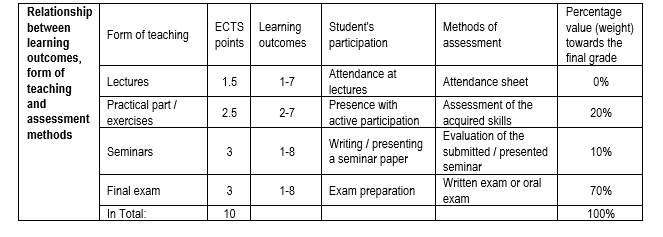The objective of the course is to teach students about neurological changes and their clinical and functional consequences; to familiarize students with neurological and neuro-muscular system diseases, physiotherapeutic procedures to reduce certain functional changes; to explain to the students the impact of neurological damage on muscle tone changes, control of posture and spatial-time parameters; as well as the appropriate evaluation procedures; to show the student the scientific publications published in the field of physical therapy, neurological sciences, rehabilitation and related areas, as well as sources of standards and guidelines for clinical neurophysiotherapy, and to teach students to critically analyse
scientific literature.
Major diseases, injuries and dysfunction of the peripheral and central nervous system and their pathogenesis with pathophysiology and clinical manifestations.
Diseases and disorders that cause permanent disability and those that can be improved by physical therapeutic treatment.
Main areas of neuro-degenerative state and psychological disorders, as well as changes that come with ageing.
The role of diagnostic procedures in neurology, especially in visual diagnostics. Advantages and indications for procedures, including functional imaging techniques (FMR, PET), electrophysiological diagnostics – EEG, EMG, evoked potentials. Radiological diagnostics – classical and contrast diagnostics and ultrasound diagnostics.
Protocols for assessing the level of physical function and structure.
Objective procedures for evaluation of muscle tone, control of posture and spatial-time parameters as a consequence of neural damage.
Theoretical basics of neurophysiotherapeutic concepts.
Critical assessment of professional and scientific literature and quality of published studies.
Upon completion of this course, students will be able to:
- Recognize and critically evaluate the specifics of different models of physiotherapy in people with neurological disorders and diseases
- Apply functional testing in patients with neurological disorders
- Name and describe diagnostic procedures in the diagnosis of neurological disorders
- Apply physiotherapy procedures during the treatment of neurological diseases
- Monitor the effectiveness, evaluate and critically analyze the effects and application of the physiotherapy process in people with neurological disorders
- Recognize the importance of the proper functioning of the rehabilitation team and actively participate in teamwork
- Critically analyze professional and scientific literature



